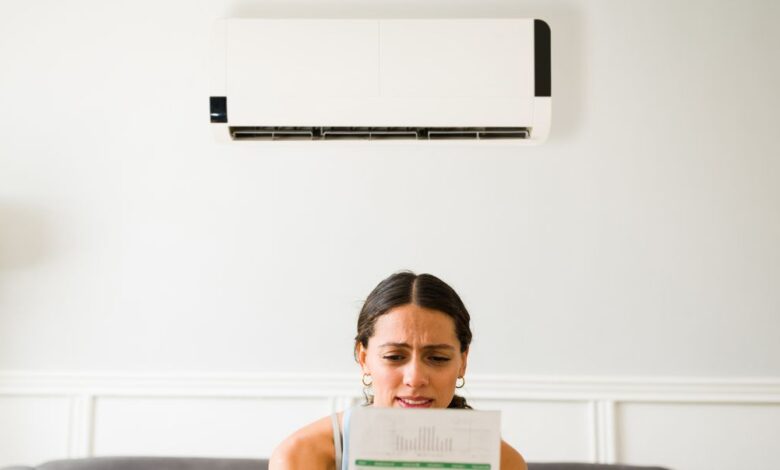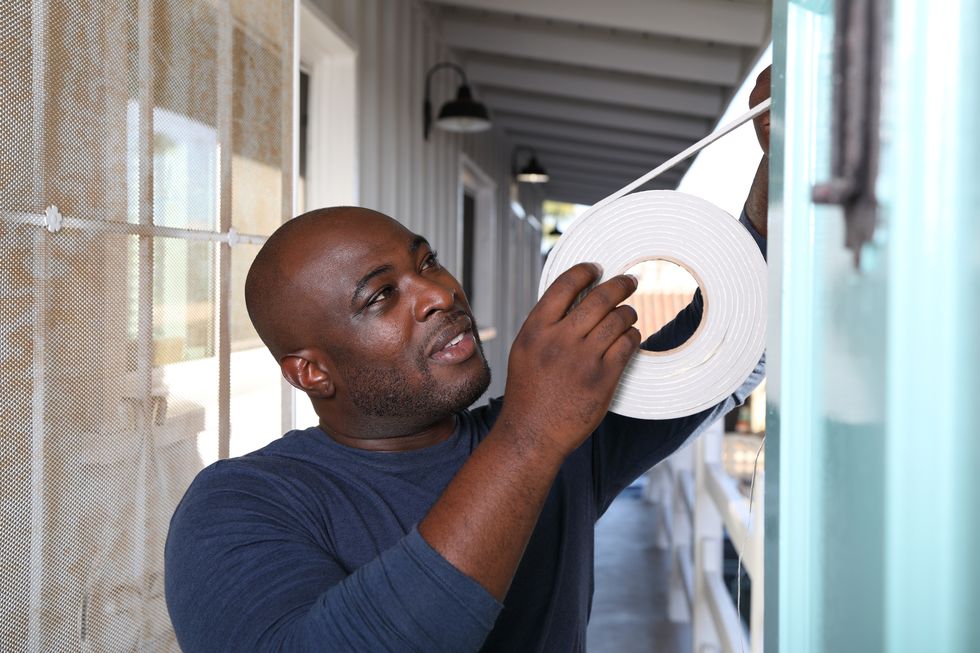How to Save Money on Energy Costs This Summer

While your present thoughts might be on vacations and the perfect beach read, there’s something a bit less pleasant that summer often brings with it: high energy bills. To help, we tapped experts to find proactive ways to lower your energy costs, whether you live in a house or an apartment. Put their simple yet surprisingly effective tips into action, and you’ll be spending the rest of your summer the way you ought to: without a care.
Filter out inefficiency.
A recent survey found that less than half of homeowners who plan to spring-clean take into account appliance, structural or preventative maintenance. That’s a mistake, since “regular maintenance and upkeep of critical appliances and systems can help reduce energy use — and your electric bill — during extreme weather conditions,” says Courtney Klosterman, insights expert at a national home-insurance company.
Just for starters, you could save anywhere from 5 to 15 percent off your summer energy bill from simple HVAC-filter maintenance. Clogged filters reduce airflow, negatively affecting your system’s efficiency. But restoring it to its proper level can just be a matter of either cleaning or replacing your old filter. (Which is necessary will depend on your device: Look up your model and manufacturer to find out.)
Replacement is simple enough, but there are a few different cleaning options: You can use a vacuum to suck out dust, or wash the filter with water and a little vinegar for a deeper clean. Check with your manufacturer for its suggestions.
Cool off with a heat pump.
While the name might sound a bit counterintuitive for summertime, an efficient heat pump like those made by York can very efficiently keep your home cool. Simply put, it uses a refrigerant to transfer heat either to or from your living space. “In the summer, it acts as an air conditioner, and in the winter, it reverses the refrigerant flow and becomes a heating unit,” explains Dave Budzinski, VP of global residential & light commercial at Johnson Controls, York’s parent company. “Since heat pumps are powered by electricity and operate by transferring heat rather than producing it, they can reduce home energy use significantly.” All while providing consistently pleasant indoor temperatures year-round, no matter the season.
And not only will you end up saving money on cooling your home, you’ll also be able to take advantage of some incredible tax credits. As part of last year’s Inflation Reduction Act, households can claim a tax credit for 30 percent of the costs of buying and installing a heat pump, up to $2,000.
Unplug electronics whenever possible.
The U.S. Department of Energy (DOE) uses the term “energy vampires” to describe devices that continue to use energy while plugged in even when not in use. Some of the biggest culprits include phone chargers, TV and gaming systems, small kitchen appliances like toasters and air fryers, laptops and computers, and even hair dryers.
Close up cool air’s escape hatches.
Weather-stripping is the process of sealing openings around doors and windows to prevent airflow from your home to the outdoors and vice versa. And while it’s perhaps more well known as a means of keeping your house toasty in the winter, it’s just as crucial in summer. You don’t want your air conditioner working overtime to keep things cool because you’re constantly losing that precious chilled air to the outdoors.
Happily, weather-stripping products are easy to come by, and most are equally easy to install. Options include adhesive-backed foam, which compresses to seal gaps, and tubular rubber-gasket weather strips, which conform to openings and fill up space.
Get yourself out of hot water.
The second-highest expense in an average American home comes from the water heater, which accounts for just under 20 percent of its energy use. Do the math, and this means the average U.S. household spends between $400 and $600 a year just on heating water.
To reduce these costs, consider this recommendation from both the U.S. Consumer Product Safety Commission and the DOE: Set your water-heater temperature no higher than 120 degrees F, both to prevent scalding and to conserve energy. To save even more, try washing dishes and doing laundry in cooler water than usual when possible. It might not seem like much — but remember, all the little changes you make can together add up to big savings.
Source link







